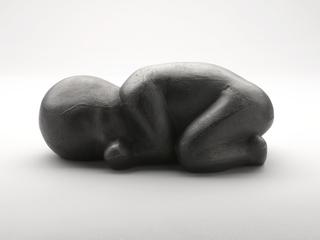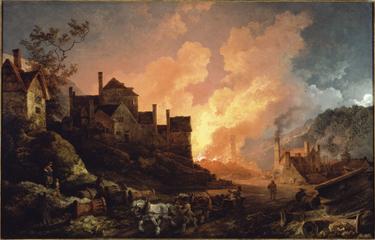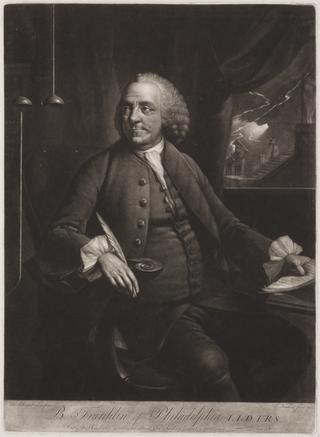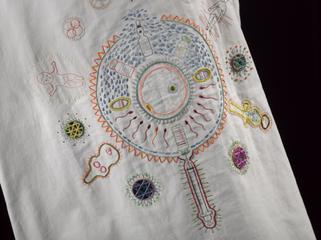
Prototype mask by Danielle Baskin for Maskalike
- Made:
- 2021 in San Francisco





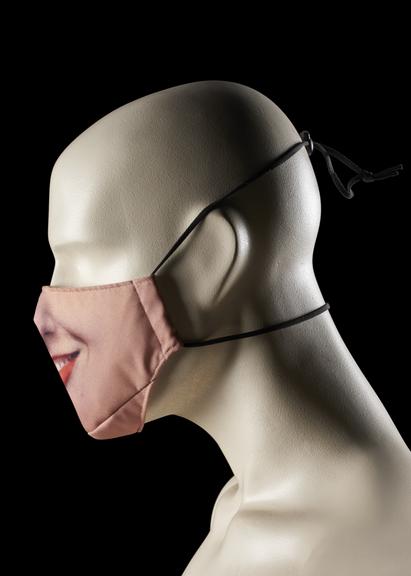




Recent prototype facemask designed by Danielle Baskin, 2021, for Maskalike. The design uses a photograph of the bottom half of Baskin's face to allow the wearer to use facial recognition technology while wearing a face covering. Baskin's nose and mouth are shown, with the lips open wearing red lipstick, teeth visible. Cotton and polyester mask printed with dye sub ink. White lining, brand and washing instructions on back. Black knit elastic cord with black plastic toggle.
Maskalike was founded in California in early 2020 by designer Danielle Baskin, in response to the emerging Covid-19 pandemic. Customers uploaded a photograph to the online shop, which was then used to create a face covering showing a realistic image of the lower half of their face. Offering both practical and humorous opportunities, the masks were picked up by the US media and shipped worldwide.
Baskin donated two examples of the masks to the SMG collection. Both feature her own face, and have been used, tested and worn by her. This second is a later model from 2021, adjusted for better fit and using a more staged photograph. The masks ‘feature special nose darts and a contoured chin piece that prevents slipping, bunching, and gapping.’ Customers photographs were adjusted using special software to make the image fit the contours of the mask and appear realistic. Baskin worked with Vincent Woo and Vincent Lee to develop a script that automated warping the image so that it looks realistic for the different mask panels and created a custom image file for the printing process. From an early focus on customer’s own faces, the site later offered celebrity and animal masks, and encouraged the design as fun and whimsical.
During the Covid-19 pandemic, the mandatory move to face coverings (unless exempt) in many countries, led to a multitude of different designs and responses by artists and members of the public. The focus by Baskin on a realistic face image offered a specific opportunity for carers and family members to help those who struggle to identify people behind a mask. Baskin was approached by care homes seeking to produce masks for staff members to wear. Such masks also allowed the user to continue to use facial-recognition technology – particularly on mobile phones. Issues with using such technology while wearing a mask were noted early in the pandemic and reflect the increasing prevalence of visual biometrics in technology security systems.
Details
- Category:
- Art
- Object Number:
- 2021-1667
- Materials:
- cotton (textile), ink, textile and plastic (unidentified)
- Measurements:
-
overall: 120 mm x 200 mm x 55 mm, .14 kg
- type:
- mask

